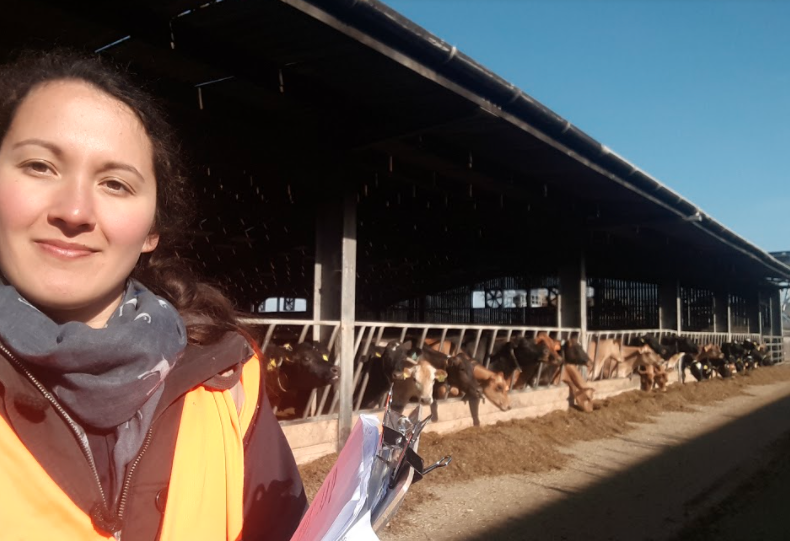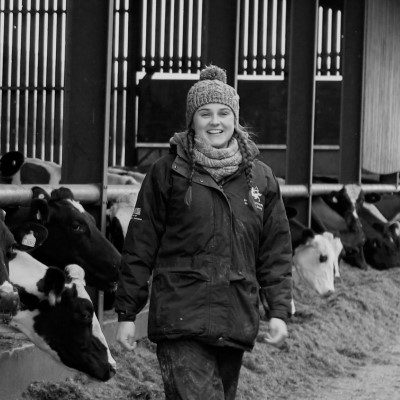CIEL | Blog: Agri-tech adoption: learning lessons, taking action
Professor David Rose

Pictured: Change in Agriculture team members
Encouraging uptake of new technologies across farming is a key challenge that needs to be overcome if agriculture is to become more productive, profitable, resilient and sustainable.
As part of the CIEL Insights series, we’re shining a spotlight on this important issue – covering the impact of legislation, cross-sector differences, the retailer perspective and explore successful methods of driving change across the industry. We will be releasing a series of blogs and podcasts alongside a panel discussion webinar which was held on 14 February a focussed on gaining different perspectives from key stakeholders across the livestock industry on the theme of Farmer Adoption of New Innovation.
The research undertaken by Professor David Rose and his team within Change in Agriculture is delivering the evidence needed to help drive the adoption of new technologies within farming. Thanks to Professor David Rose for sharing this insight in our latest blog exploring farmer behaviour, barriers and incentives to adoption:
The Change in Agriculture group
The Change in Agriculture group, currently split between Cranfield University and the University of Reading, has been doing research for a number of years on farm technology adoption. An early piece of research on factors affecting the adoption of decision support tools highlighted several technology-centric (reliability, ease of use, performance, ease of repair, interoperability between technologies) and user-centric (trust, finances, habit, age, farm type, skills) influences on adoption. It also highlighted the importance of the operating environment, including rural digital infrastructure, enabling regulations, and advisory support.
In more recent work, including a PhD on the adoption of digital livestock technologies (Juliette Schillings) and an Innovate UK project called Robot Highways (robotics on a soft fruit farm), similar adoption factors are still noted. Juliette’s work explored the use of an Artificial Intelligence-based camera to detect lameness and the use of a mobile application to assess animal emotional wellbeing, as well as looking into the use of precision livestock farming (PLF) more widely. In a survey of 145 UK dairy cattle farmers, Juliette found that several factors were considered important (moderately-extremely important) in the adoption or non-adoption of PLF including benefits (e.g. productivity, welfare, health), ease of use, ease and cost of installation, and advisory support. In the Robot Highways work, various factors such as enabling regulation and physical farm infrastructure were considered important, as well as health and safety, skills, costs, and benefits.

Juliette on fieldwork
Our work joins a large literature on farmer technology adoption. This literature clearly shows that adoption of technology can be slow because it is not always easy for farmers to adopt. For example, they may not have the money, skills, or support to invest in new technology. Or, the technology may not perform well, either because it is unreliable or fails to address the key issues on farm. Or, even if the technology performs well in trials and the farmer is able to use it, rural digital infrastructure may not allow it to work as intended.
Our work has consistently argued that the focus of future efforts should not only be on trying to understand factors affecting adoption; but rather, on action to address the known bottlenecks. A recent piece of research from Norway argued that agri-tech is more likely to be adopted if there is readiness in five areas:
- Technology – the technology is ready and performs well.
- Market – there is sufficient demand and the ability to scale the technology.
- Regulations – laws allow the use of the technology.
- User – farmers have the skills, infrastructure, and financial ability to use the technology.
- Innovation environment – farmers and innovators are supported to use the technology.
In the UK, many organisations and individuals play a role in creating an innovative environment that encourages agri-tech adoption. The focus needs to be on making it as attractive and easy as possible for farmers to adopt the kinds of agri-tech that will make a difference on their farms. This will always involve an aspect of farmer-led innovation so that we are creating usable and relevant tools for farmers to use.









